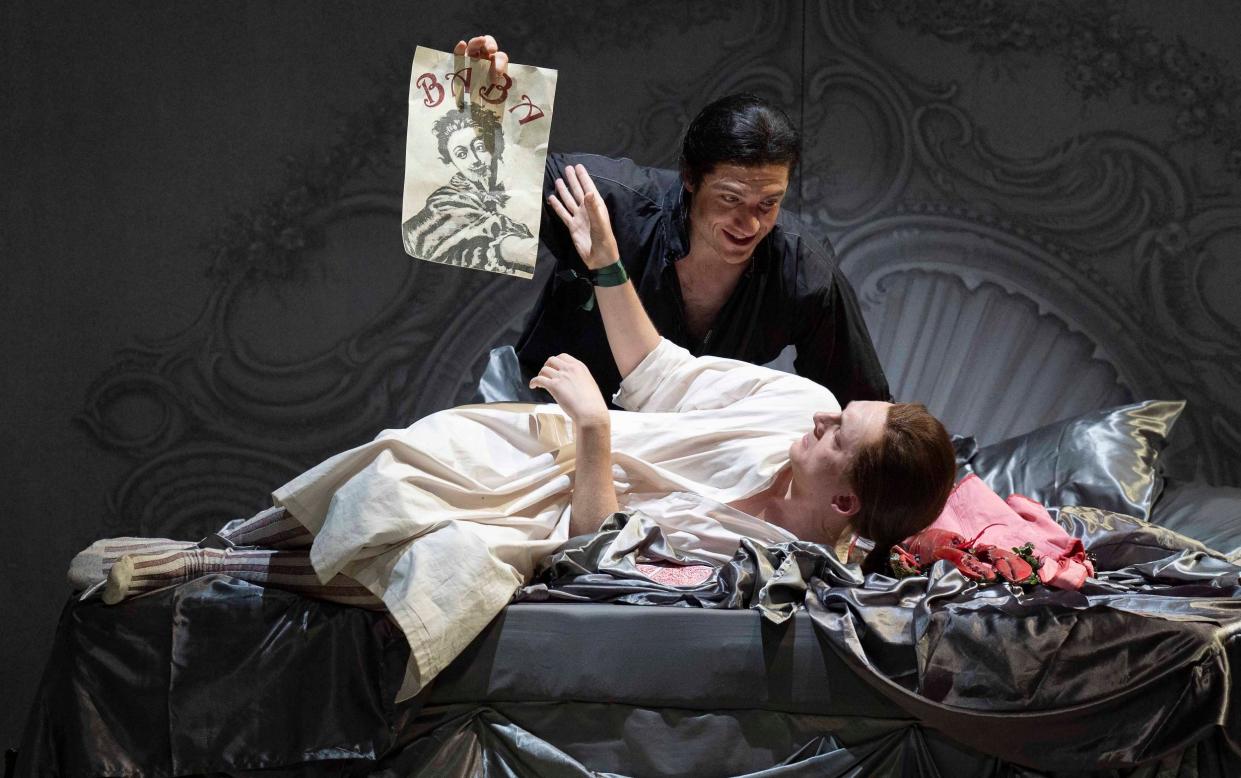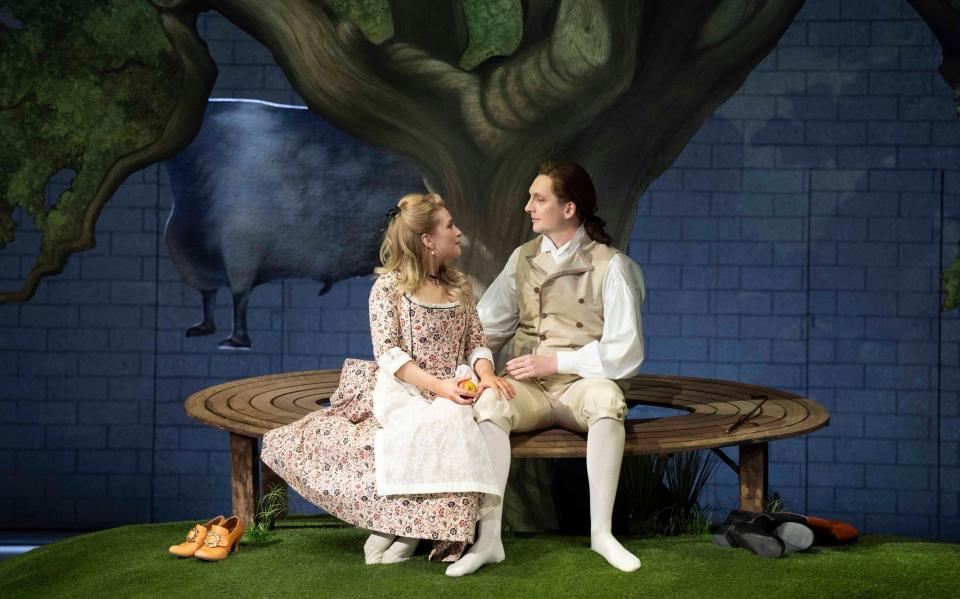The Rake’s Progress: A handsome new staging that brings out the opera’s pathos

Any new designer of Stravinsky’s opera must tussle with the legacy of David Hockney’s hugely influential designs for Glyndebourne in 1975, still being used onstage and reproduced on a thousand posters, plates, websites and souvenirs. Antony McDonald, who has designed and directed this new production at the Grange, has gone for a clean and classical take that is more akin to Thomas Gainsborough than the William Hogarth paintings the 1951 opera is based on.
When we first meet lovers Tom Rakewell (Adam Temple-Smith) and Anne Trulove (Alexandra Oomens) under a garden tree, they could well be the ancestors of Gainsborough’s Mr and Mrs Andrews, ready to settle into a comfortable moneyed life. But things go wrong when Tom is lured away to a white-tiled London flat by the devilish Nick Shadow (Michael Mofidian), and he ultimately ends up in a grey-walled asylum. There is plenty of colour and swagger from the excellent Grange Festival Chorus in the sleazy city scenes, but the colour drains away in the final affecting tombeau-like tableau.
Tom should be a character of vaulting ambition before his downfall: Temple-Smith sings with a welcome brightness and clarity of tone but is surely too much of a wimp; Mofidian’s Shadow beats him hands down here, as his hard-hitting, biting baritone captures the stage, until the final showdown when Tom finally defeats him. However, Temple-Smith’s understated performance allows Tom to emerge with true pathos as a wan, deluded inmate at the asylum, imagining himself to be Adonis waiting for Venus.

As the ever-constant Anne, always there for the wayward Tom, Oomens sustains a really excellent concentrated tone, firmness of pitch and moving eloquence as she soars up to the top C with which Stravinsky finds a link back to the operas of the past. There are so many echoes here of operatic Mozart (especially Cosi fan tutte) and many others from Tchaikovsky to Strauss that it is something of a miracle that Stravinsky found a convincing composing voice in this, his only full-length opera. But, thanks to a fine libretto by WH Auden and Chester Kallman, there are plenty of diversions along the way to shape the piece, including here an exuberant and unusually sympathetic Baba the Turk from Rosie Aldridge, and an aptly bumbling Sellem the auctioneer from John Graham-Hall. Good support too comes from Darren Jeffrey as Truelove’s faithful father, and Catherine Wyn-Rogers as a pungent Mother Goose.
I loved the way that the formality of the chorus’s movements echoed the shape of Stravinsky’s writing, and the principals are all well directed: Mofidian in particular gave each swish of his cloak impact and meaning. A doubt remains about the musical realisation: while there was some gracefulness in Tom Primrose’s direction of the Bournemouth Symphony Orchestra, there was not nearly enough of the confident incisiveness required: some orchestral chording was tentative, and the balance too often did not make sense. Stravinsky’s exuberance was captured; his lyricism was too subdued. But there is time for this to grow in later performances.
To July 6; thegrangefestival.co.uk

 Yahoo News
Yahoo News 
